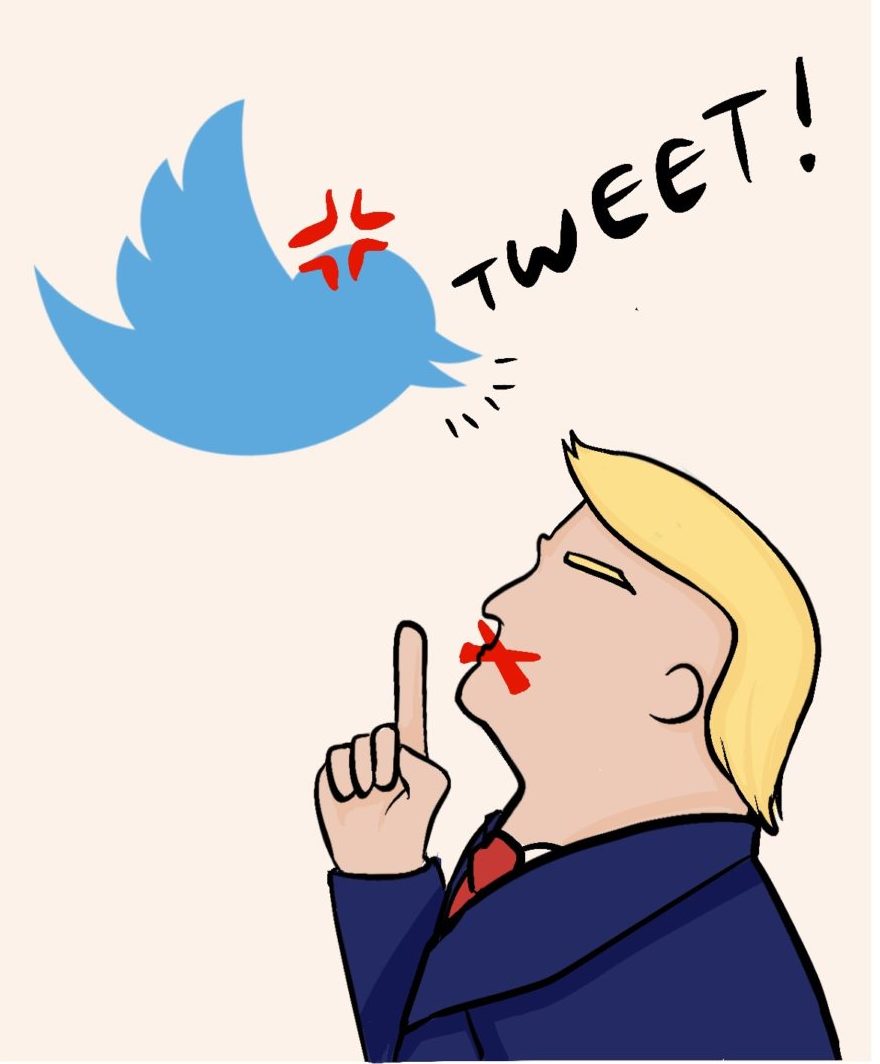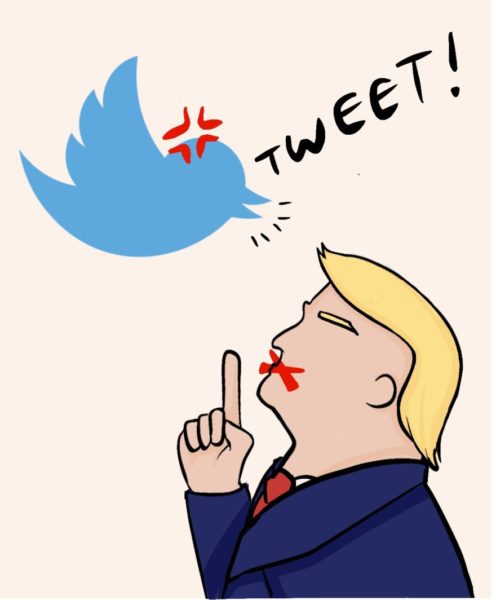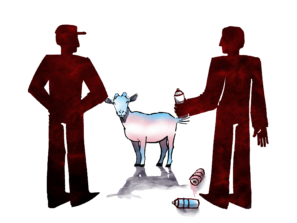

Two days after the violent insurrection in the U.S. Capitol on Jan. 6, Twitter made the sensible decision to permanently suspend former President Donald Trump, who was, at the time, still in office. The company stated that the tweets went against their “glorification of violence” policy.
Twitter’s actions can hardly be labeled as violations of the First Amendment’s guarantee of free speech. Although Twitter is a public forum, allowing users to communicate within its terms of agreement, it ultimately is a private enterprise. The company is not subjected to the rules that the federal government must follow. Companies such as Facebook, Google and Twitter are oftentimes labeled as public only because their shares — a percentage of ownership of a company’s capital — are publicly accessible on the stock market, not because they are a government organization.
Even though millions of people use the platforms each day, they technically aren’t public spaces, meaning that the First Amendment guarantee of free speech doesn’t necessarily apply to the sites. Unless the company is owned by the government, it is protected as a private entity, and enforcing its terms of service is within Twitter’s reach. That being said, the expansion of corporate power may seem far too great considering the impact that world leaders can have through social media outlets. Twitter’s own CEO Jack Dorsey previously claimed that the suspension of accounts detracted from the ethicality of the sites.
To tackle the problem of defining the parameters for ethical censorship, an objective consortium of both private entities and public spheres could convene in order to inspect various discrepancies and provide a more objective solution as a sort of public-private altruism.
Many conservatives argue that the suspension of the various accounts linked to Trump outline a form of suppression that technology companies can exploit. While a company’s power to ban whoever they want, whenever they want, is frightening, it does bring up legal consideration when approaching the controversy.
At this point, there aren’t really any loopholes that Twitter or other large companies have been exploiting. Section 230 of the Communications Decency Act, established in 1996, protects these large companies from legal ramifications. The section states that a company is not responsible for the language of its users. Many Republican lawmakers are openly against the act claiming that it gives too much protection and leeway to Big Tech companies. However, if the section gets repealed, it will inevitably cause nothing more than the restriction of speech on such platforms. Because of the possibility of facing legal action concerning a user’s remarks, Twitter, Facebook and other social media companies would have to crack down harder on what is allowed, making their terms of service more robust than the limits people are already claiming are a restriction of free speech.
Twitter’s banning of 70,000 right-wing extremists was also seen as an act of suppression, but the reason for the bans seems to be fairly clear. False information, as we saw on Jan. 6, can fester to the point of causing violence. Banning QAnon supporters did exactly this; their removal suppressed not the truth, but harmful conspiracy theories. Because of confirmation bias — the idea that people will only look for data that they agree with — stopping misinformation is extremely pertinent.
Others may argue that Trump’s ban from various social media sites was a massive suppression of speech, although it seemed much less like a coordinated political attack and much more like a realization of the potential violence that accounts as Trump’s could trigger.
Regardless, companies like Twitter have their own set of guidelines which they have the discretion to enforce and can remove those who may violate these regulations. Trump was banned as a preventative measure against the incitement of violence, not because he holds conservative viewpoints. The same goes for the extremist accounts that were suspended for spreading misinformation, a completely justifiable initiative on Twitter and other major networking sites’ end. Even though Trump and other leaders use Twitter as a platform to reach their base, there is no reason that they have to be held at a higher standard than the conventional user. If they do cross the line, which is what occurred when Trump incited violence at the Capitol riot, they should face the appropriate consequences.
“Guidelines exist for a reason — to provide a secure space for users to interact with each other”
The power that Big Tech companies hold may truthfully be too extensive, but as we stand now the status quo is the best option. Guidelines exist for a reason — to provide a secure space for users to interact with each other. Hate speech and the spread of unreliable or untruthful statements are only a breeding ground for misinformation and unwarranted chaos.





